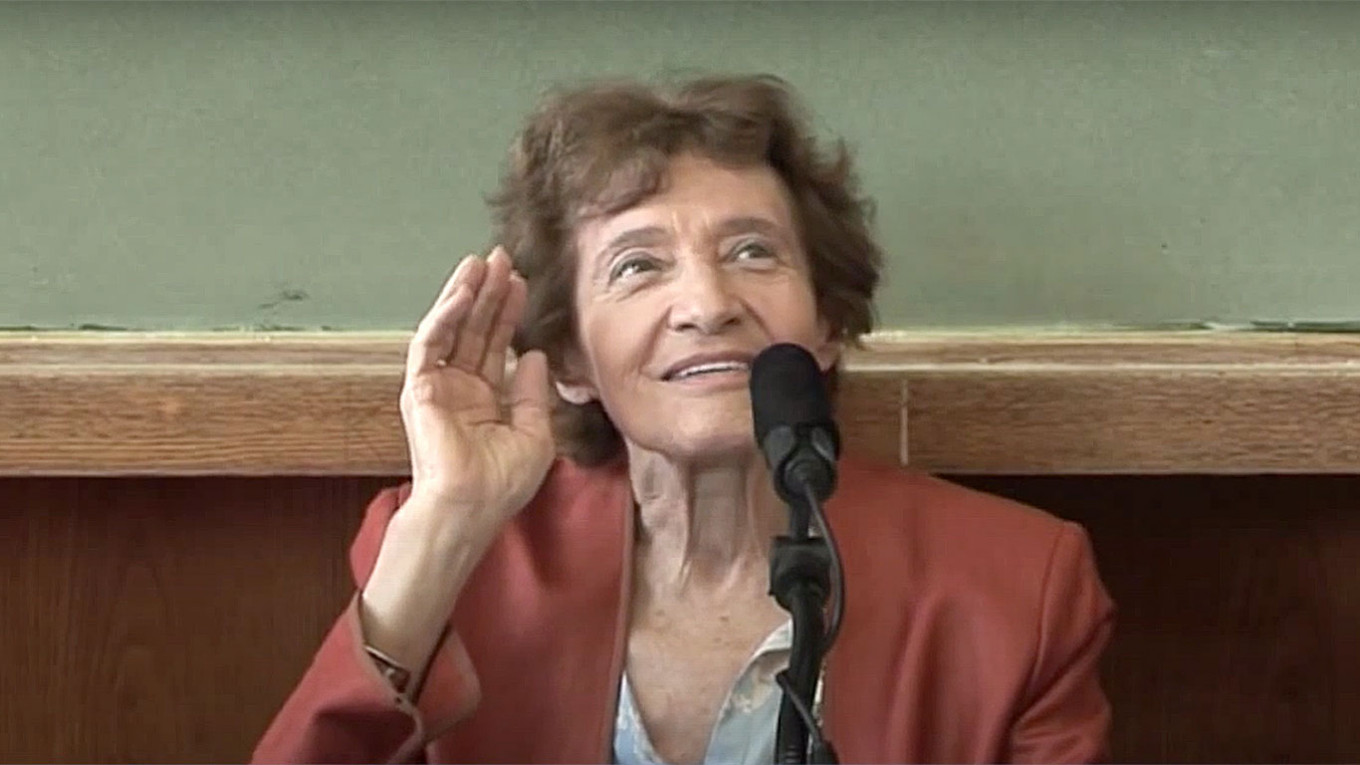The documentary filmmaker Marina Goldovskaya died in Latvia on March 20 at the age of 80.
Goldovskaya made nearly one hundred documentaries, many of which were intimate portraits of her subjects. She is perhaps best known for her work during the late Soviet and early post-Soviet period that opened doors into the inner lives of people living in a time of great change. She won many awards for “Arkhangelsky Peasant” about the first private farmer in the Soviet Union in 1989 and for “The Bitter Taste of Freedom” about murdered journalist Anna Politskovskaya, made in 2011.
Goldovskaya was born in to one of the Soviet Union’s most famous film families. Her father was Yevsei Goldovsky, an inventor and academic who was one of the founders of the All-Russian State Institute for Cinematography (VGIK). Goldovskaya graduated from the institute in 1963 as a camera operator, one of three women at the film school. One of her first jobs was working as the assistant camera operator for Andrei Tarkovsky.
In the mid-1990s she moved to California and taught at the UCLA School of Film and Television in Los Angeles. Her autobiography, “A Woman With a Movie Camera,” was translated by Antonina W. Bouis and published by University of Texas Press.
The filmmaker Vitaly Manski wrote on his Facebook page, “She was vibrant and incredibly talented. She was a woman documentary filmmaker with a camera in her hand at a time when she was the exception to all the rules. She made her own rules, and she was always victorious.”
No information about funeral arrangements have been made public.
A Message from The Moscow Times:
Dear readers,
We are facing unprecedented challenges. Russia's Prosecutor General's Office has designated The Moscow Times as an "undesirable" organization, criminalizing our work and putting our staff at risk of prosecution. This follows our earlier unjust labeling as a "foreign agent."
These actions are direct attempts to silence independent journalism in Russia. The authorities claim our work "discredits the decisions of the Russian leadership." We see things differently: we strive to provide accurate, unbiased reporting on Russia.
We, the journalists of The Moscow Times, refuse to be silenced. But to continue our work, we need your help.
Your support, no matter how small, makes a world of difference. If you can, please support us monthly starting from just $2. It's quick to set up, and every contribution makes a significant impact.
By supporting The Moscow Times, you're defending open, independent journalism in the face of repression. Thank you for standing with us.
Remind me later.






